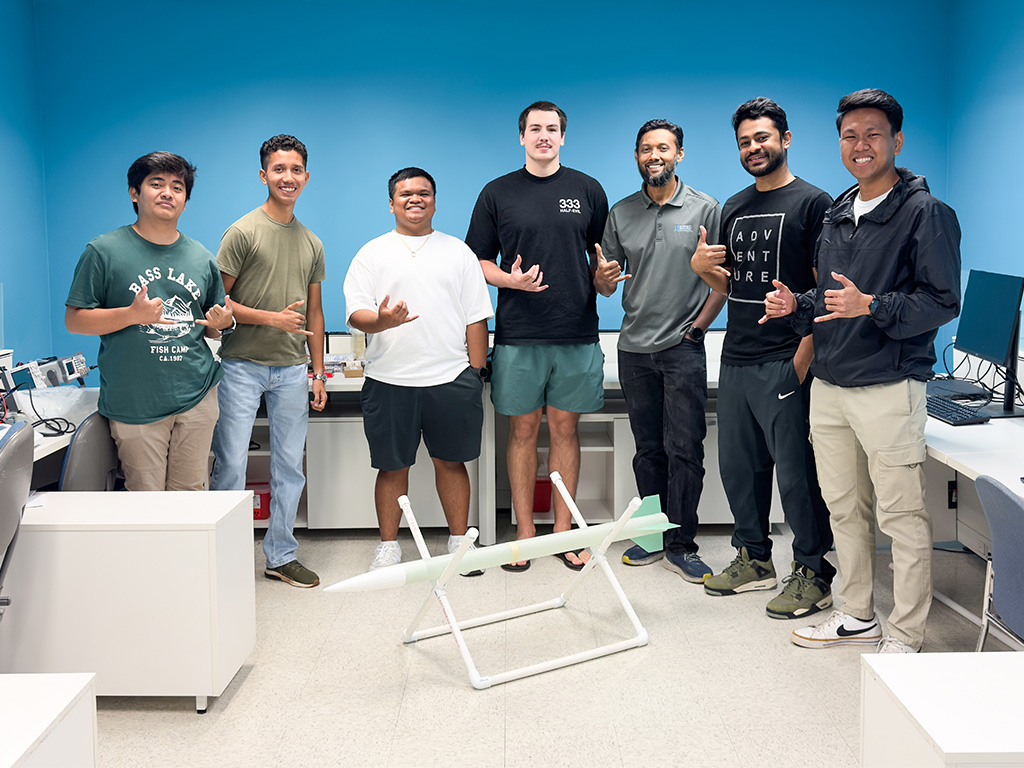
HPU engineering students with Arifur Rahman (third from right) in the microsystems and energy lab.
HPU announced this morning the award of a $350,000 grant from the National Science Foundation (NSF) as part of the PARADISE initiative—Partnering to Advance Research And Drive Innovation on Sustainability and the Environment. The grant will enhance research capacity and foster partnerships within islanded communities, specifically focusing on environmental sustainability, engineering, and natural resources.
The PARADISE initiative, which includes collaboration with the University of the Virgin Islands and Paul Smith's College, seeks to address systemic challenges faced by higher education institutions in isolated areas. By building partnerships that focus on environmental and sustainability innovation, the project aims to create transformative educational experiences and improve public health, economic development, and climate resilience.
“Our goal with this grant is to leverage our unique strengths and cultural connections to tackle critical environmental challenges,” said Arifur Rahman, Ph.D., HPU Assistant Professor of Engineering and Principal Investigator for the grant. “Through strategic investments and collaborative exchanges, we will empower our students and faculty to engage meaningfully with local industries and communities.”
The initiative focuses on four key industry areas: forestry, agriculture, renewable energy, and marine science. These areas are vital to the economies of the partner institutions and will guide student research and hands-on experiences.
Over the course of three years, HPU will support 20 undergraduate student teams through real-world projects addressing local industry challenges, with a focus on innovation within Hawai‘i’s unique industries. Under the guidance of HPU faculty mentors, students will collaborate with local businesses and community stakeholders to develop innovative, culturally relevant solutions that benefit underserved communities and enhance regional innovation ecosystems. This initiative will provide hands-on experience and leadership opportunities for students from underrepresented groups, fostering workforce diversity, expanding research capacity at HPU, and building sustained partnerships between academia and industry.
“The success of our students will be measured not just by their academic achievements but by their ability to transition into the workforce, equipped with the skills and experiences needed in today’s job market,” Rahman added. “When students graduate, they will be better prepared to serve and integrate seamlessly into local industries.”
PARADISE officially began this month, with an emphasis on integrating local and indigenous knowledge into research practices. Workshops with local employers are scheduled to begin in December 2024, helping to shape the training programs and research opportunities for HPU students.
For additional information on the HPU engineering programs, click here.


